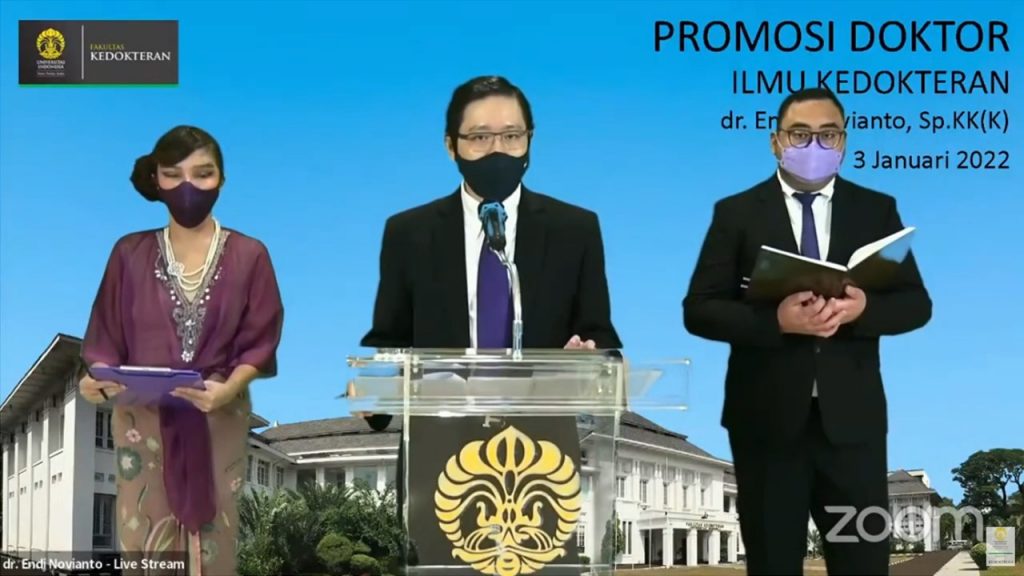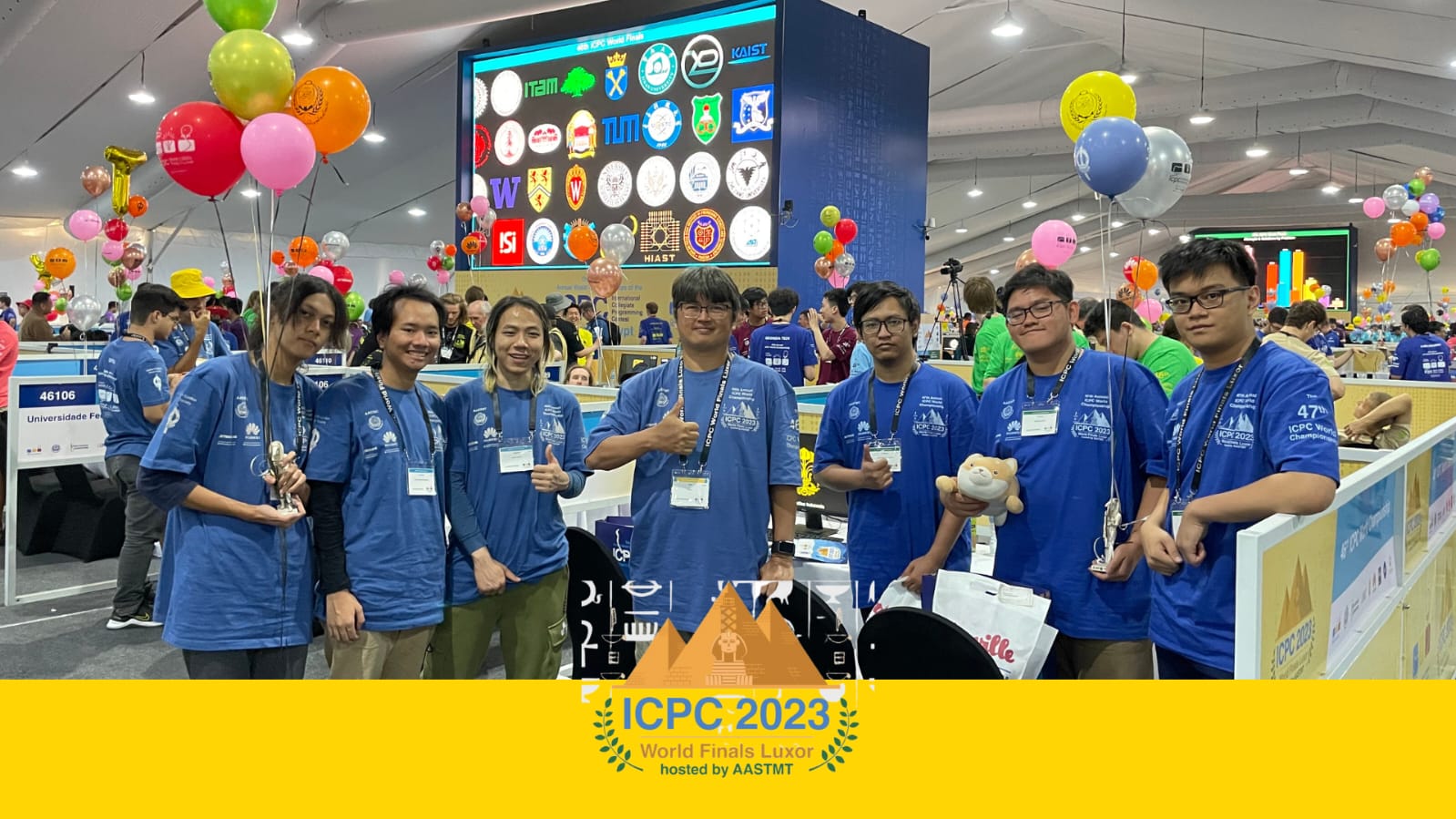
Atopic dermatitis or often referred to as atopic eczema is a broad-spectrum skin disease that can affect all ages, from infants to the elderly. Atopic dermatitis patients may experience relapses characterized by the reappearance of reddish skin patches that sometimes become wet. During relapses, the disease can make a discomfort because of the itching.
Up until now, medications for severe atopic dermatitis have generally suppressed the immune system and had various side effects. The use of standard medications, such as topical moisturizers and corticosteroids, as well as H1 antihistamine (AH1) medications, has not fully reduced the severity and prevented the recurrence of atopic dermatitis. Therefore, effective and safe drugs are needed for patients that can minimize side effects on patients.
Endi Novianto in his dissertation entitled “Effectiveness of Cimetidine Addition in the Treatment of Extrinsic-Acute Atopic Dermatitis: A Study of Serum Levels of Immunoglobulin E, Interferon-y, Interleukin-12, and Interleukin-4” proposed the drug cimetidine as an alternative cure for extrinsic-acute atopic dermatitis. According to him, Cimetidine as an H2 antihistamine (AH2) has the potential to treat extrinsic atopic dermatitis for patients who experience relapses.
 “At a dose of 25-40 mg/kg body weight per day, it is estimated that cimetidine can increase the formation of certain substances produced by antigen-presenting cells. The substance will restore the response of the cell-mediated immune system and reduce the allergic response. This process is expected to decrease the formation of immunoglobulin E (IgE) and then reduce the severity of atopic dermatitis. There is no previous evidence that cimetidine can treat extrinsic atopic dermatitis that relapses, which is measured objectively, clinically, and laboratory-wisely,” said Endi at the doctoral promotion session which took place on Monday (3/1).
“At a dose of 25-40 mg/kg body weight per day, it is estimated that cimetidine can increase the formation of certain substances produced by antigen-presenting cells. The substance will restore the response of the cell-mediated immune system and reduce the allergic response. This process is expected to decrease the formation of immunoglobulin E (IgE) and then reduce the severity of atopic dermatitis. There is no previous evidence that cimetidine can treat extrinsic atopic dermatitis that relapses, which is measured objectively, clinically, and laboratory-wisely,” said Endi at the doctoral promotion session which took place on Monday (3/1).
According to him,cimetidine drug is a very good choice. Apart from being cheaper, cimetidine can also reduce the clinical severity of the disease and reduce itching, which can be seen at week 2, but must be significant by week 6. This will certainly be very helpful for patients and families, both from a subjective and objective perspective.
This study concluded that the addition of cimetidine, in addition to standard therapy, is better in reducing the clinical severity of extrinsic atopic dermatitis patients. “Based on the results obtained, it is recommended to add cimetidine at a dose of 25-40 mg/kgBB/day or a maximum of 1,200 mg/day in addition to standard therapy such as AH1 drinking medicine, corticosteroid ointments, and moisturizers, to reduce clinical severity, reduce itching, and reduce serum IgE levels in extrinsic atopic dermatitis patients who experience relapse,” he explained.
 Meanwhile, the Chairman of the Session who is also the Dean of Universitas Indonesia Faculty of Medicine (UI FM) Prof. Dr. dr. Ari Fahrial Syam, SpPD-KGEH, MMB said, “As chairman of the session and on behalf of the faculty leadership I congratulate Dr. Endi Novianto, SpKK(K) for his achievement today. We saw earlier from the answers delivered by Dr. Endi Novianto, for me as a gastroenterologist this is something quite interesting.”
Meanwhile, the Chairman of the Session who is also the Dean of Universitas Indonesia Faculty of Medicine (UI FM) Prof. Dr. dr. Ari Fahrial Syam, SpPD-KGEH, MMB said, “As chairman of the session and on behalf of the faculty leadership I congratulate Dr. Endi Novianto, SpKK(K) for his achievement today. We saw earlier from the answers delivered by Dr. Endi Novianto, for me as a gastroenterologist this is something quite interesting.”
Prof. Ari added, “Generally, patients with atopy are also stressed and anxious because of the itching back and forth. Eventually, her stomach acid rose. So it is fitting that if we treat this with H2 receptor antagonists, the stomach acid can be suppressed and the itching reduced. So, this S3 research proves that, although it was mentioned earlier that this research still needs to be proven immunologically, but clinically this is a double-blind control trial, so it is quite significant.”
Dr. Endi Novianto is a lecturer in Dermatology and Venereology at Universitas Indonesia Faculty of Medicine. Currently, he is the Head of the Division of Dermato Allergy Immunology at the Department of Dermatology and Venereology Universitas Indonesia Faculty of Medicine . The promoter at this promotion session was Professor of Dermatology and Venereology Universitas Indonesia Faculty of Medicine Prof. Dr. dr. Rustarti Retno W. Soebaryo, Sp.KK(K) with co-promoters Dr. dr. Tjut Nurul Alam Jacoeb, Sp.KK(K), and Dr. dr. Wresti Indriatmi, Sp.KK(K), M.Epid.



